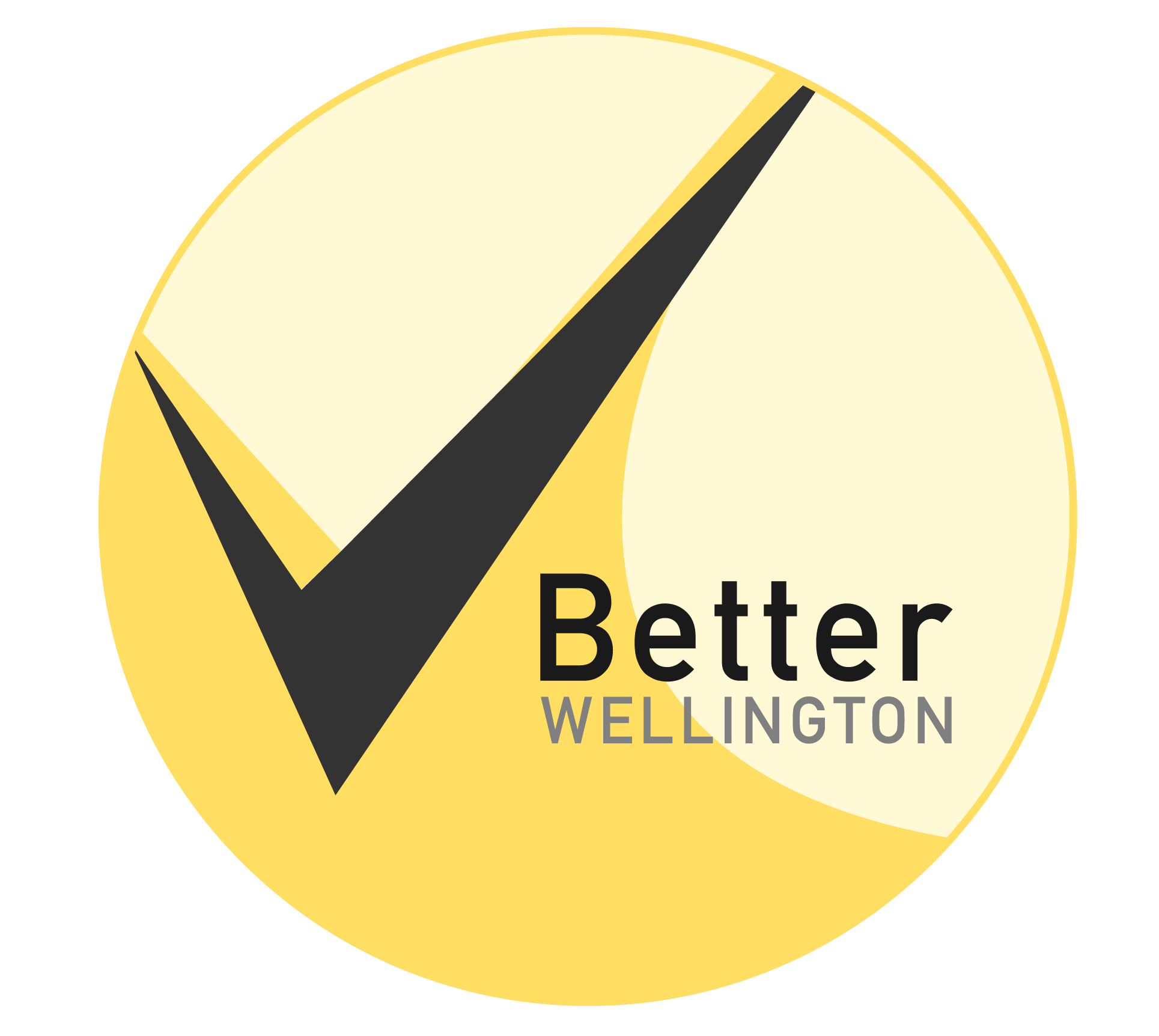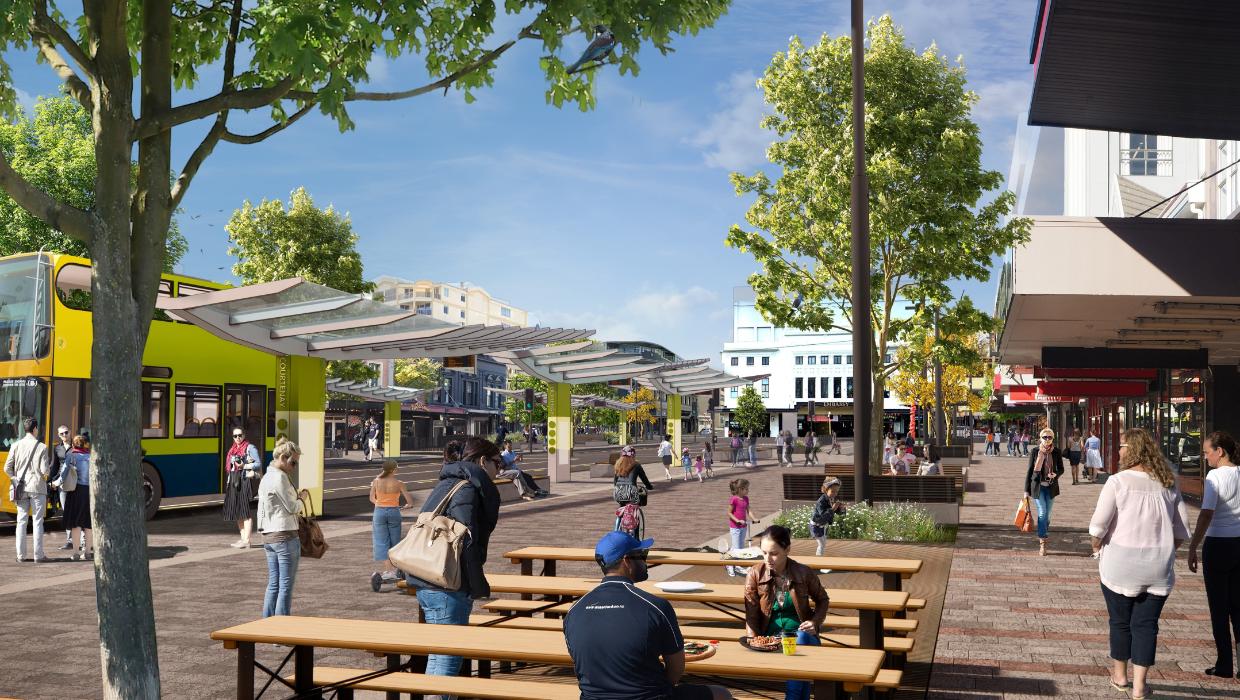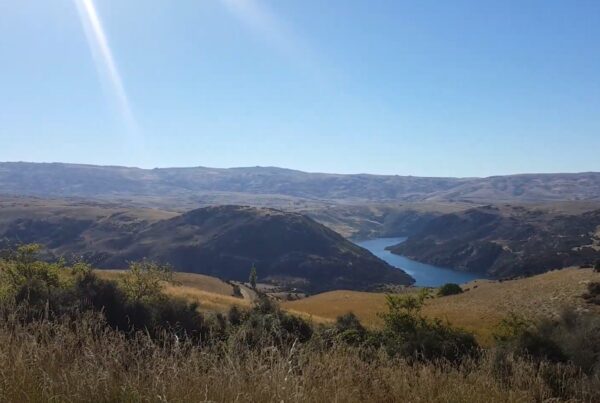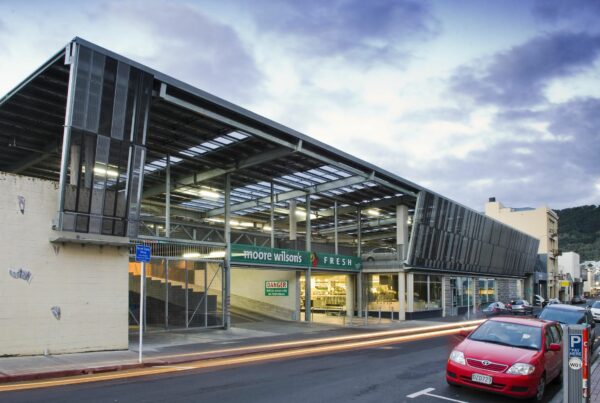Around 150 concerned Wellington business owners and residents turned out to Prefab Hall in Jessie Street, Te Aro, tonight to voice their concerns and anger at the continued lunacy of Let’s Get Wellington Moving, the extreme costs to ratepayers, and the hidden agenda behind the anti-car ideology that appears to have gripped the city council’s over-paid bureaucrats.
Hosted by Retail NZ’s Aimie Hines, Manager Public Affairs and Advice, the meeting will help ensure the growing concerns of the retail sector are heard loud and clear by the council. Seven city councillors (Diane Calvert, Ray Chung, Tim Brown, John Apanovich, Sarah Free, Nicola Young, and Iona Pannet) were present, along with the chairman of Wellington Regional Council, Daran Ponter.
The meeting agreed that the Golden Mile changes must be paused, that businesses needed to be included in the council’s decision-making (not just as a mere adjunct to the process or where business owners have the same say as a cyclist) and the council must invest in an economic study to understand fully what support our city needs, among other things.
Ultimately, the increasing cost of the Golden Mile changes, the very clear evidence that removing private cars and car-parks from the central city is killing businesses and is a barrier to shoppers coming into central Wellington, the vast majority of those at the meeting believed the time had come to shelve the proposals and reassess.
We need a council that operates from reality not what they want to happen.
This council is clearly influenced by an anti-car, pro-public transport agenda, and wants people to get around the city on their bicycles or little electric scooters.
Well, we’re not Amsterdam where it’s all flat; this is windy, hilly Wellington and in terms of core cyclists, there are only about 1,000 of them.
Next week, the council is expected to vote on spending 49 percent of a $140 million plus on the Golden Mile alone, according to councillors present and Retail NZ. It’s time everyone spoke up against continuing with this financial madness.
Don’t take our word for it. Here’s a selection of some comments from those who attended the meeting.
Karl Tiefenbacher from Kaffee Eis told the meeting: “As a city, the place I’ve lived my whole life and somewhere I want to live for the rest of my life, at this stage, I don’t know if I still want to do that, because I can see the path we’re taking is going to make the city a very uncomfortable place to live. This has never been about cycles, [our concerns] have always been about car reduction. It’s never ever been about cycleways. We not giving people more options; we’re reducing them.”
Nicola Cranfield, owner of Cranfields, said her business had been operating for 32 years, and has seen many changes. “Since the Kaikoura earthquake, we’ve struggled because a lot of our customers haven’t been able to get out and visit us because we lost the car-parking buildings, and they now order online from inner city suburbs and we ask them why they can’t come in and they say the public transport doesn’t work for us, the car parks are just too hard, you just can’t rely on a car park, so we’re not coming into the city. When these people don’t come in, they don’t also go and get a coffee or get lunch or other incidental activities. The vibrancy isn’t there. It’s just a real impact on the city when you don’t have people coming in for these multi-stop trips.”
Olivia from Lazulé, the jewellery store on Cuba Street, told the meeting: “I have a lot of concerns around this whole project but it’s not only based on the removal of car parks and the lack of parking. The widening of the footpaths and putting in extra seating is, I believe, a big problem because we’ve got at the moment at the top of Cuba Street a huge big space with lots of seating and that is where a lot of issues are caused. We’ve got a lot of people congregating in these areas that are actually scaring off people who are in the city. The tourists are back and a lot of people are saying, ‘the city isn’t what it used to be. It doesn’t look good, it doesn’t feel good’. The empty shops are a massive issue as well. It’s not nice, there’s not the diversity of shops there used to be.”
Simon Arcus, Executive Director of the Wellington Chamber of Commerce and Business Central, said: “What we hear in the Chamber most of all is irritation and disillusion with the lack of listening, even when you hear reasonable sensible people coming up with great ideas, they get discounted. So there are a lot of people in the city and in business who don’t contribute to consultations in meaningful ways because they just don’t believe there isn’t a pre-determined outcome already on the table. And what they put in place which is sensible and often interesting is not considered in any thorough or fulsome way. When we look at the consultation process, the sense of things being pre-determined is becoming more real. The world has changed since these plans were first drafted, and the cost of debt servicing with interest rates and everything has gone up. It’s the same with councils and it’s just the same with Let’s Get Wellington Moving. The cost of these projects and how to prioritise them needs to be looked at. If we kill off hospitality and retail in this city, we kill off the arts sector.”
Dame Kerry Prendergast, former Mayor of Wellington, told the meeting: “I chair the Royal New Zealand Ballet and more importantly the St James Theatre has just had a $42 million makeover with your money, it’s a critical part of this city’s infrastructure. I had a letter from a patron to say they couldn’t drop their mum off going forward because the council was not going to change the rules that no private cars or taxis between seven in the morning and nine at night in Courtenay Place. When I raised that as an issue, I was told there is disabled parking in Taranaki Street. I measured it. It’s 95 metres from the theatre. If you are elderly or differently abled, you’ll only be able to access the St James by bus or walking. Finally an apology, when I was mayor I agreed to close Manners St between Willis and Victoria Street and make it only buses. 30 percent of the stores are closed and another 10 percent are $2 Shops or the equivalent and we believe that’s going to happen to the rest of Wellington. I apologise, because I genuinely believe now that if you have just buses only, you will end up with a dead city!”
Kristine Muollo, business owners and commercial landlord: “My concern is safety of people in the city. If Lambton Quay is gone and the homeless start moving into the city. And business people can’t afford to pay their rates because their shops are empty, and the buildings will come derelict. More homeless will move in and the safety of the city is just compromised. I have a building in Manners Street and we’ve had two armed robberies, within two days of each other. I rang up the police and they said we’re doing the best we can with the resources we have. So my main concern is actually the safety of people in the city. Once businesses have all gone, which is what’s going to happen if we get this LGWM, people won’t come into the city because of safety.”
Barry Wilson, S.O.S. (Save Our Street) Courtenay Place: “We’ve been going to four years. We’ve been to 80+ meetings. We have more than 80 members formally, representing about 800 staff. That their hood. They have a very diverse day. They have a very diverse business range. We’ve very concerned about some things. The turn-arounds won’t work and are dangerous. The toddlers, mums with prams, old folk, disabled – the idea of trucks below 5 metres doing u-turns in those streets, in all sorts of weather, with backing horns going, is ridiculous. Also, they’re taking away the median strip and the buses will run head to head, like they do in Manners Street. That again is dangerous. The buses are 3 feet apart. A driver heart attack, a disturbance, a sneeze, a distraction, a kid on a skateboard, anything can lead to a head on bus crash, it’s an accident waiting to happen. The median strip is there to jump on, it’s a safety refuge, it’s been there forever. So what they’re going to do now is turn a half the journey into a whole journey. To make buses go two minutes faster along the Quay, they’re going to take huge risks with your lives and your kids’ lives.”
Julie Gubb, Gubbs Shoes: “We have simply closed because the city is not worth being in the way it is. I don’t see any for it if the Let’s Get Wellington Moving plans continue. I think we’re all in agreement, we don’t need to keep saying the same thing. It’s just hopeless the way things are going.”




WHY WE DO WHAT WE DO